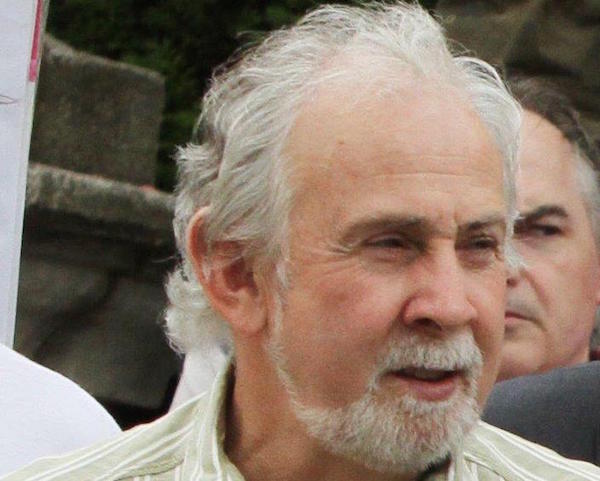Creeslough man John Downey has been granted bail pending an extradition appearance.
Mr Downey is facing charges in relation to the killing of two Ulster Defence Regiment (UDR) soldiers in Enniskillen in 1972, will be granted bail this afternoon.
Northern Irish authorities are seeking the surrender of Downey, aged 66 to face charges in relation to the 1972 bombing in Enniskillen which killed two British Army Infantrymen. Lance Corporal Alfred Johnston and Private James Eames were killed when a device exploded in a vehicle they were checking on the Irvinestown Road, Cherrymount.
Mr Downey was arrested on foot of a European Arrest Warrant at his home address in Ards, Creeslough, on Monday and brought to the High Court the following day. The warrant was issued by Northern Irish authorities and endorsed by the High Court on Monday morning.
Det. Sgt Jim Kirwan, of the Garda Extradition Unit, told Ronan Kennedy BL, for the State, that he arrested Mr Downey on foot of the warrant at his “substantial residence” on Monday and cautioned him.
In reply, Mr Downey told the detective “I’d say it was the DUP and not the DPP” who decided to charge him in relation to the matter, Det. Sgt Kirwan said.
High Court judge Ms Justice Aileen Donnelly said today that it was appropriate to grant bail on Mr Downey’s own bond of €500 and two independent sureties of €15,000 each. She said €10,000 of each of those two sureties are to be lodged.
The matter will be mentioned before the court again this afternoon.
Ms Justice Donnelly said she had a concern in relation to Mr Downey’s means.
While Mr Downey has said he is on a State pension, Ms Justice Donnelly said she had no idea whether it was a contributory pension or a non-contributory pension.
“I’ve no idea what he’s been working at,” the judge said.
She said there was evidence from Det. Sgt Jim Kirwan that Mr Downey resided at a “substantial property” and “for some reason” the property was “transferred out of his name to his wife” last year.
Ms Justice Donnelly said a cash sum of €5,000 raised by Mr Downey’s wife and two adult children was also a concern to the court.
The judge said she had to “take the view” that Mr Downey had access “through his acquaintances” to a “greater level of surety”.
She noted that the proposed surety was an accumulation of cash “quite distinct from having money in a bank account”.
Counsel for Mr Downey, Tony McGillicuddy BL, said he could see a “substantial point” being raised in favour of refusing his client’s surrender.
Mr McGillicuddy said Section 39 (2) of the European Arrest Warrant Act states that a person shall not be surrendered where he or she has, in accordance with the law of the issuing state, become immune, by virtue of any amnesty or pardon, from prosecution or punishment in the issuing state for the offence specified in the European arrest warrant issued in respect of him or her.
Mr Downey’s trial in relation to the 1982 London Hyde Park bombing – in which four British soldiers and seven horses were killed – collapsed in February 2014 over a letter sent to him and other alleged republican paramilitaries.
The letters, issued by the Tony Blair government, told the republicans they were not wanted for the prosecution of crimes committed during the Troubles.
The “on-the-run” scheme and letters, which fully emerged following the collapse of Mr Downey’s 2014 Hyde Park trial, triggered a major political controversy and lead to an inquiry.
Mr Downey is the first so-called “on-the-run” republican to be charged with offences since the scheme was found by a House of Commons Committee to have “distorted the process of justice”.
Tags:







